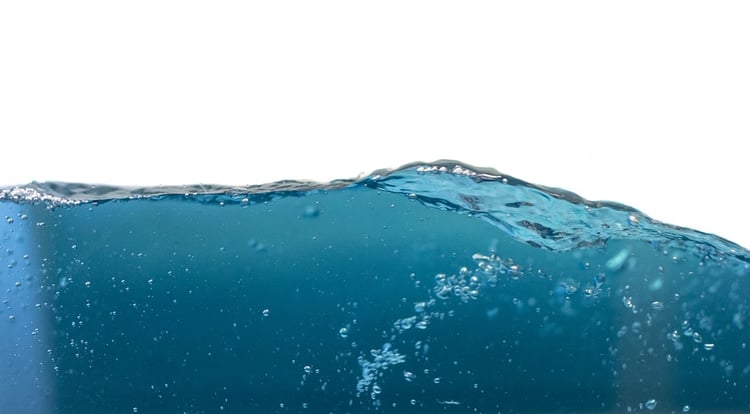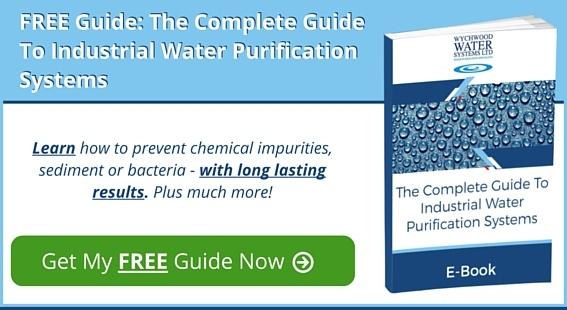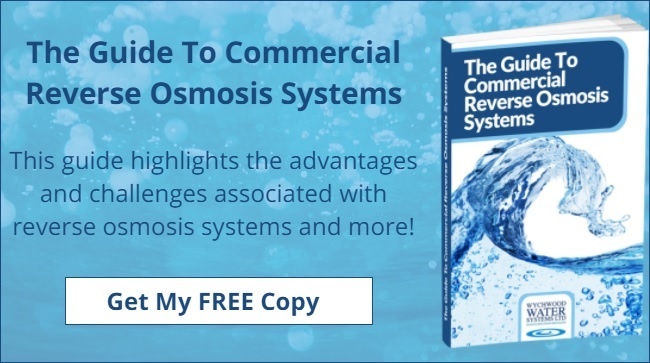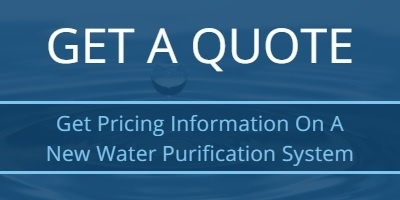
When your facility’s water isn’t as pure as you need it to be, or it’s time to replace your equipment, it can be difficult to know which option to choose. There are plenty of good reasons to invest in a new industrial water purification solution, but which one will yield the best results for you? This will depend on the level of purity you require. There are three main types of system to choose from, which we will examine below.
Industrial Deionisation
Deionisation (DI) offers any facility the opportunity to effectively remove inorganic contaminants from water. The deionisation of water can be achieved either by a system employing Ion exchange resins, or one that uses cells of Ion Exchange resins and an electrical field.
1) Conventional Deionisation (DI) Also known as Ion Exchange
The two charged resins in an industrial deionisation system will either be in the same chamber, (mixed bed) or reside in separate chambers, (two bed or three bed). The resins are similar in either case, with one resin charged to attract cations, and the other to attract anions. All cations from water are removed by the cation resin, and all anions removed by the anion resin. These resins must be regenerated on a regular basis to maintain treated water quality. Constant monitoring of purity levels is achieved with an online conductivity instrument.
Regeneration requires the application of chemicals, Hydrochloric acid and Sodium hydroxide. For this reason, resin-based conventional deionisation may not be ideal if your facility produces water for the manufacture of pharmaceuticals.
2) Continuous Electro-Deionisation (CEDI)
Power generation and pharmaceutical facilities will often choose continuous electro-deionisation, or CEDI, to purify their water. CEDI also removes the cations and anions from water, but via the use cells of Ion Exchange resin sandwiched between Ion selective membranes. The cells are continuously regenerated by an electrical field across them. This method offers benefits including the fact that no chemicals need to be used for regeneration or chemical effluent produced.
CEDI is always fed with pre-purified water produced by Reverse Osmosis. The combination of the two technologies provide bacteria free purified water which is acceptable for validated pharmaceutical applications.
3) Industrial Reverse Osmosis (RO)
RO works by feeding pre-treated water into a semi permeable membrane under pressure. The water molecules, hydrogen and oxygen permeate through the membrane. The impurities in the water are then concentrated up and flow to drain in a concentrate stream. The RO membranes remove both organic and inorganic impurities. Their performance can also be continually validated with online instrumentation.
Today’s RO membranes offer an advanced performance. Total solids rejection rates are now as high as 99.6% Feed water pressures are now also reduced saving electrical energy. meaning greater energy savings for your facility.
Industrial RO systems can be used on their own, but can also be ideal when feed water needs to be pre-treated prior to other technologies. Using RO for pre-treatment also lengthens the life of any other water treatment systems that may be installed downstream.
Current RO systems have a reduced maintenance requirement. If performance does decline, today’s thin film composite membranes can be cleaned and their performance recovered. Good bacteria performance is often a factor of good overall system design. RO systems can, however, be disinfected to maintain excellent bacteria performance.
Prevention Of Bacterial Contamination
There may also be other tools needed to prevent bacterial growth in your water treatment system. UV treatment of feed water to prevent the occurrence of bacteria can be very effective. Systems can also be treated with very little risk by treating systems with hydrogen peroxide. As well, heat treatment can raise the temperature enough to kill off bacteria in feed water, as well as be used to treat existing bacterial contamination in systems.
Which Treatment Option Is Best For Your Facility?
One way to know whether a water treatment system is right for your facility is to get professional advice. You can make a start by downloading our free Guide to Industrial Water Purification Systems. Written by our water treatment experts here at Wychwood, this contains all you need to know to make an informed decision about your next industrial water treatment system. The team at Wychwood will be very happy to visit you to survey the application and advise on the best cost effective solution for your requirement.
Our team at Wychwood have many years of combined experience with water treatment and preventing bacterial contamination, and are happy to answer any other questions you may have. Just email sales@wychwood-water.com at any time.









 We are a specialist independent company involved in water purification and water treatment technologies
We are a specialist independent company involved in water purification and water treatment technologies


